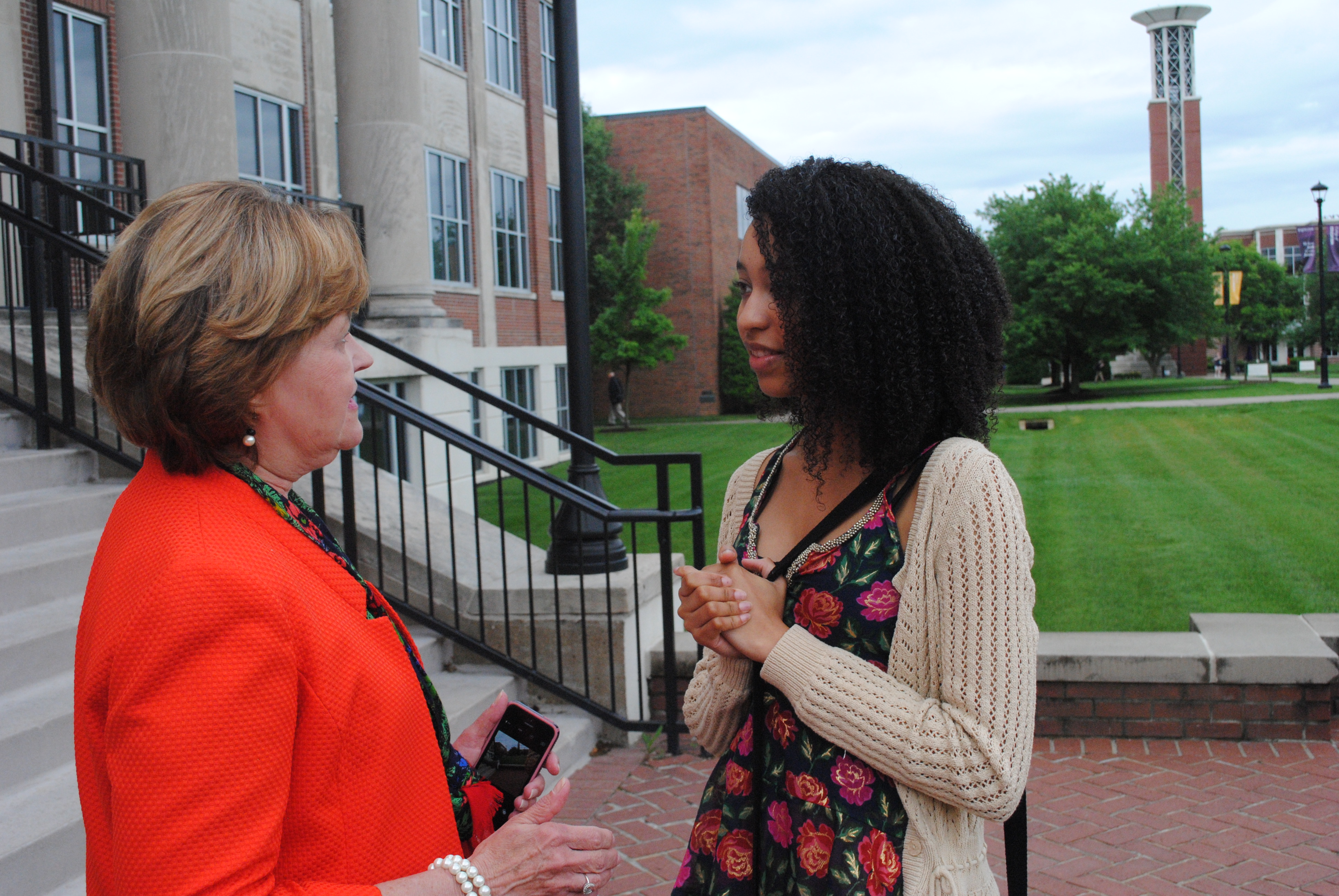Lipscomb University will host the Tennessee Supreme Court this week as part of the American Legion Auxiliary’s Volunteer Girls State program, which gives high school female leaders the opportunity to experience and learn about civic engagement.
The Court will hear two cases at the session on campus June 2. The program participants receive study materials to learn in-depth details about the cases. After they listen to the oral arguments, the students participate in a Q&A session with the attorneys who argued the cases.
The Supreme Court oral arguments are just one part of the weeklong program that provides first-hand experience about how our government works. This program works to empower our state’s young women to become engaged in their communities through learning opportunities and group interactions. In addition to learning about the judicial process and studying the cases they will observe, they also hear from a number of other elected officials in Tennessee.
Oral arguments start at 8:30 a.m. in A.M. Burton Health Sciences Center on Lipscomb’s campus for the following cases:
Reginald Dion Hughes v. Tenn. Bd. of Parole – Reginald Hughes is in prison, having been convicted and sentenced to serve 60 years for murder. Mr. Hughes filed a petition for writ of certiorari challenging the denial of parole. The trial court dismissed the petition based on a Tennessee statute that provides that where an inmate has not paid court costs assessed against him in a previous matter, the court clerk can refuse to file a new petition until the costs are paid. Mr. Hughes owed $258.85 in unpaid court costs, so the trial court dismissed the petition and the Court of Appeals affirmed the dismissal. The Supreme Court will decide whether the statute that prevents an inmate from filing a case due to unpaid court costs in another case is constitutional.
Ms. Bowen, et al. v. William E. Arnold, Jr. – Ms. Bowen sued Mr. Arnold for damages claiming that he sexually abused and molested her son. A jury convicted Mr. Arnold of aggravated sexual battery and three counts of rape of a child. The issue the Supreme Court will decide in this civil case is whether Mr. Arnold can challenge the fact that he sexually molested and raped the child even though he was convicted of the charges. Ms. Bowen argues he cannot dispute this issue, but Mr. Arnold claims he is innocent and wants to require Ms. Bowen to prove his guilt in the civil case. The trial court agreed with Ms. Bowen.
The Court also will hear two cases later Thursday in the Supreme Court Building in Nashville. The cases will start at 2:00 p.m.:
State v. James Robert Christensen, Jr. – In this case, police officers received information that James Christensen, Jr. was making methamphetamine at his home. The officers, who did not have a search warrant, went to his home to investigate. As the officers approached the front door of Mr. Christensen’s mobile home, they smelled meth and went inside and discovered an active meth lab. Mr. Christensen was arrested and later moved to suppress the evidence found in the search of his home. Mr. Christensen argues that he had posted a “no trespassing” sign on his property and the officers had no right to enter his property without a warrant. The State contends the search was legal. The Supreme Court will decide the constitutional validity of the search of Mr. Christensen’s home.
Darryl F. Bryant, Sr. v. Darryl F. Bryant, Jr. – In this dispute between father and son, the issue is who has ownership rights to property in Old Hickory. Molly Bryant, the mother and grandmother to the Bryants executed a deed in 2009 conveying the property to herself and her son Darryl, Sr. as a joint tenancy with a right of survivorship. Just over a year later, she executed another deed transferring an “undivided interest” in the property to her grandson, Darryl, Jr. Mrs. Bryant died in 2013. Darryl, Sr. argues he owns the property outright, while Darryl, Jr. contends he has a 50% ownership interest. The Court of Appeals determined that Mrs. Bryant’s transfer of the property to her grandson would only be valid if her son died before she did, which was not the case, and awarded the property to Darryl, Sr. The Supreme Court will consider several issues related to joint tenancy with right of survivorship in Tennessee.
Read more about the Tennessee Supreme Court here. Learn more about Volunteer Girls State on their website.



